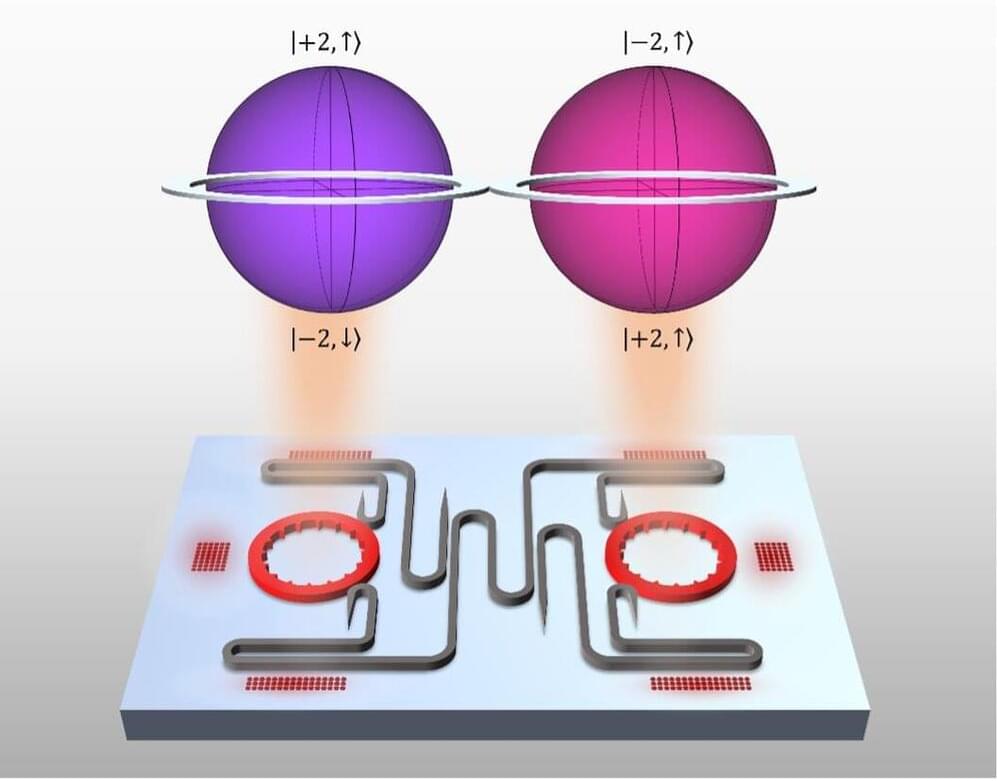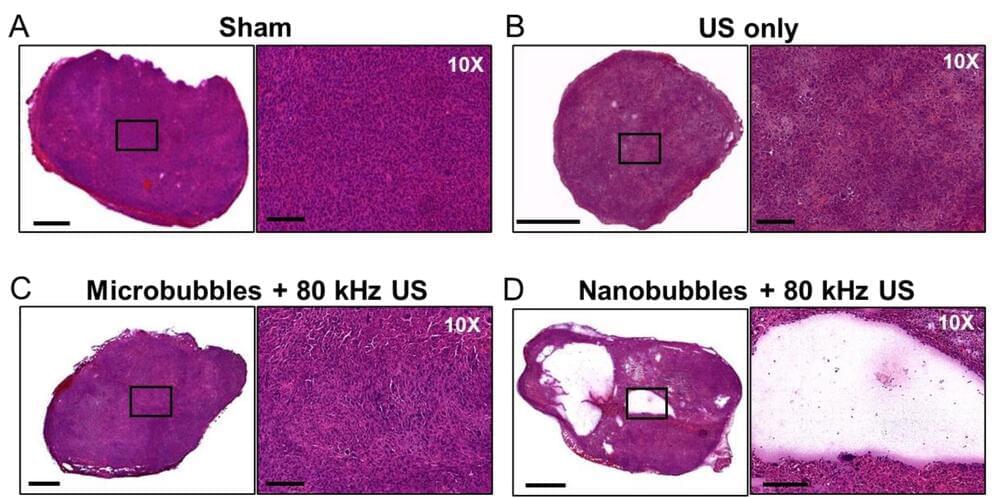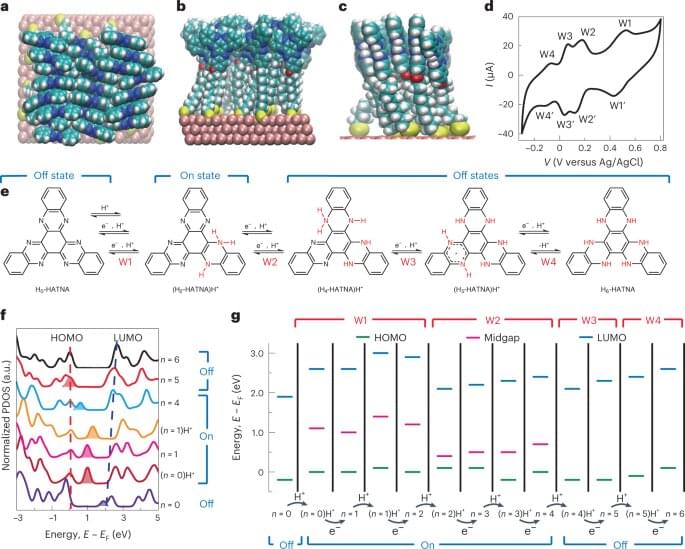Algorithms that create art, text, and code are spreading fast—but legal challenges could throw a wrench in the works.


Laser weapons cut costs, simplify logistics, and eliminate the possibility of running out of ammo. They’re also really cool.
Using these passive haptic learning gloves for playing the piano, researchers are helping TBI victims re-learn critical skills.

The Spanish police will be able to recognize criminals with artificial intelligence.
El programa ABIS es capaz de identificar a personas a partir de una imagen y ayuda a la policía a abrir nuevas vías de investigación gracias a la inteligencia artificial a pesar de ser controversial en muchos casos.

A tool for estimating the local entropy production rate of a system enables the visualization and quantification of the out-of-equilibrium regions of an active-matter system.
A movie of a molecule jostling around in a fluid at equilibrium looks the same when played forward and backward. Such a movie has an “entropy production rate”—the parameter used to quantify this symmetry—of zero; most other movies have a nonzero value, meaning the visualized systems are out of equilibrium. Researchers know how to compute the entropy production rate of simple model systems. But measuring this parameter in experiments is an open problem. Now Sungham Ro of the Technion-Israel Institute of Technology, Buming Guo of New York University, and colleagues have devised a method for making local measurements of the entropy production rate [1]. They demonstrate the technique using simulations and bacteria observations (Fig. 1).

Researchers at Penn Engineering have created a chip that outstrips the security and robustness of existing quantum communications hardware. Their technology communicates in “qudits,” doubling the quantum information space of any previous on-chip laser.
Liang Feng, Professor in the Departments of Materials Science and Engineering (MSE) and Electrical Systems and Engineering (ESE), along with MSE postdoctoral fellow Zhifeng Zhang and ESE Ph.D. student Haoqi Zhao, debuted the technology in a recent study published in Nature. The group worked in collaboration with scientists from the Polytechnic University of Milan, the Institute for Cross-Disciplinary Physics and Complex Systems, Duke University and the City University of New York (CUNY).

A new technology developed at Tel Aviv University makes it possible to destroy cancerous tumors in a targeted manner, via a combination of ultrasound and the injection of nanobubbles into the bloodstream. According to the research team, unlike invasive treatment methods or the injection of microbubbles into the tumor itself, this latest technology enables the destruction of the tumor in a non-invasive manner.
The study was conducted under the leadership of doctoral student Mike Bismuth from the lab of Dr. Tali Ilovitsh at Tel Aviv University’s Department of Biomedical Engineering, in collaboration with Dr. Dov Hershkovitz of the Department of Pathology. Prof. Agata Exner from Case Western Reserve University in Cleveland also participated in the study. The study was published in the journal Nanoscale.
Dr. Tali Ilovitsh says that their “new technology makes it possible, in a relatively simple way, to inject nanobubbles into the bloodstream, which then congregate in the area of the cancerous tumor. After that, using a low-frequency ultrasound, we explode the nanobubbles, and thereby the tumor.”

Tiny magnetic whirlpools could transform memory storage in high performance computers.
Magnets generate invisible fields that attract certain materials. A common example is refrigerator magnets. Far more important to our everyday lives, magnets also can store data in computers. Exploiting the direction of the magnetic field (say, up or down), microscopic bar magnets each can store one bit of memory as a zero or a one—the language of computers.
Scientists at the U.S. Department of Energy’s (DOE) Argonne National Laboratory want to replace the bar magnets with tiny magnetic vortices. As tiny as billionths of a meter, these vortices are called skyrmions, which form in certain magnetic materials. They could one day usher in a new generation of microelectronics for memory storage in high performance computers.
Self-driving car company Argo AI failure when Ford and VW pulled the plug after spending over $3 billion. It is big evidence that Lidar-dependent self-driving has a long way to go. All of the self-driving car companies except Tesla and Comma were using Lidar. Ford said removing the driver is over 5 years away. Most robotaxi players are dependent upon removing the driver for their business model to work enough to get to serious scale. 5+ years to get to the true starting point and 5+ years to scale translates to an 8-year lead for Tesla if Tesla solves robotaxi in 2 years. Uber had a 2.5 year lead over Lyft and that meant three times the market share for Uber.

A discovery at University of Limerick in Ireland has revealed for the first time that unconventional brain-like computing at the tiniest scale of atoms and molecules is possible.
Researchers at University of Limerick’s Bernal Institute worked with an international team of scientists to create a new type of organic material that learns from its past behavior.
The discovery of the “dynamic molecular switch” that emulates synaptic behavior is revealed in a new study in the journal Nature Materials.